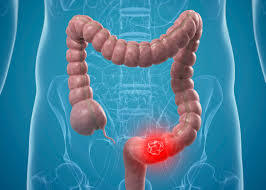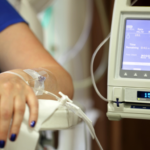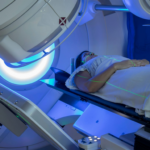
Introduction:
Colon cancer, also known as colorectal cancer, is a significant health concern worldwide. Early detection plays a vital role in successful treatment outcomes, making it crucial to recognize the symptoms associated with this disease. In this blog post, we will explore the common signs and symptoms of colon cancer, shedding light on the warning signs that individuals should be aware of. By understanding these symptoms, individuals can take proactive steps to seek medical attention, potentially leading to an earlier diagnosis and improved treatment options.
- Changes in Bowel Habits:
One of the most noticeable symptoms of colon cancer involves changes in bowel habits. These changes may include:
- Persistent diarrhea or constipation: Unexplained and persistent changes in bowel movements, including prolonged bouts of diarrhea or constipation, should be evaluated by a healthcare professional.
- Narrow stools: Bowel movements that become narrower than usual, often described as a “pencil-thin” appearance, may indicate a narrowing of the colon due to a tumor.
- Changes in stool consistency: Frequent changes in the consistency of stool, such as persistent loose or watery stools, can be a sign of colon cancer.
- Blood in the Stool:
The presence of blood in the stool, known as rectal bleeding, is a significant symptom of colon cancer. It may present as:
- Bright red blood: Blood that appears bright red may originate from the lower part of the colon or rectum. It may be visible in the stool or on toilet paper after wiping.
- Dark or black stools: Blood originating higher up in the digestive tract may undergo chemical changes as it passes through the intestines, resulting in dark or black stools, known as “tarry” stools.
It is important to note that blood in the stool can also be caused by other conditions, such as hemorrhoids or gastrointestinal ulcers. However, any unexplained rectal bleeding should be promptly evaluated by a healthcare professional.
- Abdominal Discomfort and Pain:
Colon cancer can cause various types of abdominal discomfort and pain, including:
- Cramping: Persistent abdominal cramping or pain, often accompanied by gas or bloating, can be a symptom of colon cancer. This discomfort may be intermittent or continuous.
- Abdominal tenderness: The presence of a tumor in the colon may cause localized tenderness or discomfort upon palpation.
- Unexplained weight loss: In some cases, colon cancer can cause unintended weight loss. This weight loss may occur due to a combination of factors, such as reduced appetite, changes in metabolism, and the body’s response to the cancer.
- Fatigue and Anemia:
Colon cancer can lead to fatigue and anemia, which is a deficiency of red blood cells. These symptoms may arise due to chronic blood loss from the tumor or decreased absorption of iron and other nutrients in the colon. Fatigue and anemia can manifest as:
- Persistent tiredness: Feeling excessively tired or lacking energy, even after adequate rest, can be a result of colon cancer.
- Pale skin: Anemia can cause a pale or washed-out appearance of the skin, indicating a reduced number of red blood cells.
It’s important to note that these symptoms can be associated with various other conditions as well. However, if they persist or worsen over time, it is crucial to consult a healthcare professional for further evaluation.
Conclusion:
Recognizing the symptoms of colon cancer is vital for early detection and improved treatment outcomes. However, it’s important to remember that these symptoms can be caused by other conditions as well. If you experience any of the aforementioned symptoms, particularly if they persist or worsen over time, it is recommended to consult a healthcare professional for a thorough evaluation. Regular screenings, such as colonoscopies, are also essential for individuals at an increased risk of developing colon cancer. By staying vigilant and seeking timely medical attention, individuals can increase their chances of early diagnosis, effective treatment, and improved overall well-being.




